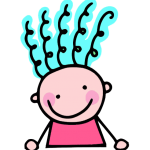
We follow the “ Development Matters” guidance as set out by the department for education.
Your baby will begin to learn many new things with us.
For example:
Being involved and concentrating.
Keep trying.
THINKING
Moving and Handling.


Our curriculum meets the requirements of the educational programmes which are set out in the statutory framework for The Early Years Foundation Stage (EYFS)
Through observation check points we can monitor children’s progress closely, and make sure they are learning and developing at the expected stages.
Children will have the opportunity to experience many things through the curriculum.
For example:
Guiding children with their own thinking and actions with encouragement and helpful comments.
Free play and problem solving.
Doing things independently.
Building on individual interests with stimulating resources.
Responding to new experiences.
Goal directed behaviour.
Reaching a goal set by the child.
Identifying and correcting mistakes.
Not giving up when a task becomes difficult.
Taking part in pretend play thinking beyond the “here and now.”
Sorting through various materials & resources.
Solving real problems.
Achieving important things by controlling attention span and ignoring distractions.
Helping confidence to grow with children’s own ideas and explanations on subjects.
Back and forth interactions for language and cognitive development.
Quality conversations and increasing vocabulary with adults and peers
Storytime and actively engaging in stories and re-telling them, role play, rhymes, poem and song.
Joining in with other children to play.
Showing interest in what other children are doing.
Using speech sounds and multi syllabic words.
Listening, understanding, and remembering simple pictorial stories.
Identifying familiar objects and things.
Learning to concentrate and listen and understand why this is important.
Using wider vocabulary and longer sentences up to six words.
Understanding “why” and two-part questions.
Become familiar with lots of different songs.
Developing how they communicate and articulate their ideas.
Connecting ideas and actions.
Thinking out loud to work things out by talking.
Encouraging children to express their feelings through words.
Learning control – to wait their turn and not grab or push.
To notice and ask questions about the world around them.
Increase their independence and sense of responsibility.
Become more out going.
Play with one or more other children.
Making decisions and finding solutions to conflict.
Understanding and following rules.
Developing ways of being appropriately assertive.
Building constructive and respectful relationships.
Develop resilience and learn perseverance with challenges.
Understand the perspective of others.
Managing their own needs.
Learn about physical risks they are confident about, such as climbing unaided.
Enjoyment of kicking, throwing, catching balls, balance and motor skills.
Showing a need to be independent by manging themselves and making more choices
Learning physical skills such as riding a bike, climbing apparatus, skipping etc
Becoming more confident, creative and adaptive in their movements.
Using the right equipment and materials for the task at hand and understanding safety
Making healthy eating choices
Communicating and understanding about their well being
Language comprehension and word reading.
Skilled word reading.
Spelling and handwriting.
Songs and rhymes reflecting various languages and cultures.
Sharing books with an adult, concentrating and responding to words or pictures.
Exploring and seeking out favourite books.
Drawing freely and using imagination
Understanding the five key concepts of print.
Developing phonological awareness.
Learn new vocabulary and engage in extended conversations.
Writing on different types of media.
Reading individual letters by saying the sounds for them to make sound -blending easier.
Blend sounds into words.
Read and become familiar with some letter groups.
Read simple phrases and sentences.
Write lower- and upper-case letters correctly.
Identifying sounds of letters to spell and write.
Singing finger rhymes.
Comparing amounts, sizes and weight.
Counting sequences, noticing patterns and arranging patterns.
Building with various resources.
Inset puzzles and jigsaws of various levels of difficulty.
Fast recognition of up to 3 objects.
Reciting numbers after 5.
Linking numerals and amounts.
Finger numbers.
Solving simple maths problems.
Talking and exploring 2D and 3D.
Understanding positioning through words only.
Using spatial words in play.
Making size, length weight and capacity comparisons with objects.
Selecting appropriate shapes and combining them.
Looking at, identifying and talking about various patterns in everyday objects.
Describing a sequence of events.
Counting objects, actions and sounds.
Linking number symbols and comparing numbers.
Understanding “ more than and “less than.”
Exploring the composition of numbers to 10.
Automatic recall of number bonds between 0-10.
Selecting, rotating and manipulating shapes for spatial reasoning skills.
Exploring and responding to the natural world.
Comparing different natural materials using all their senses.
Noticing differences between people positively.
Celebrating and valuing different cultures, religions, community events and experiences.
Talking and making sense of their life story and family history, immediate family members.
Understanding how things work
Respecting the environment and all living things.
Plant seeds, growing plants and life cycle.
Understanding the effect of the seasons of the year.
Exploring different forces like sinking and floating.
Cooking with different ingredients, cooling and heating.
Compare and contrast characters from stories, from past and present day.
Drawing simple local information map
Developing children’s artistic and cultural awareness helps to ignite and further their imagination and creativity.
Joining in with action songs and rhymes and playing rhythmic repetitive sounds with instruments
Create songs and improvise, sing in groups or soloRemember and sing whole songs
Dance and performance art
Investigate and manipulate various materials using all the senses.
Express ideas through model making
Use clocks and construction kits to construct small worlds
Take part in simple pretend play
Explore various types of textures and materials
Explore colour in drawing and paintings
Draw with increasing complexity and detail

